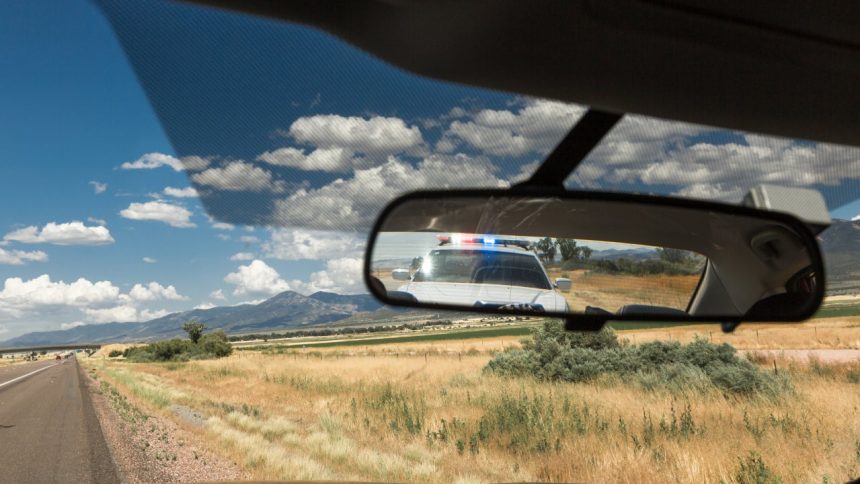Wisconsin drivers have low average rates for car insurance, but drivers with a DUI may see their rates increase significantly. If you have a DUI on your record, you may have to put in some extra work to find an affordable policy with the coverage you need. Understanding DUI laws in Wisconsin and collecting quotes from various companies may help you find the best carrier for you.
OWIs in Wisconsin
In Wisconsin, a driving under the influence charge is referred to by the legal phrase “operating while intoxicated” (OWI). In Wisconsin, the terms OWI and DUI are often used interchangeably. Wisconsin takes OWIs seriously, and state law includes a number of penalties and restrictions for those who are convicted of drinking while driving. These penalties become more severe with multiple convictions. Underage drinkers also face serious consequences if they are caught driving under the influence.
DUI laws in Wisconsin
There are a number of illegal practices and driving behaviors that could constitute an OWI in Wisconsin. These include:
- Driving with a blood alcohol concentration (BAC) of 0.08 or higher.
- Driving under the influence of an intoxicant, restricted controlled substance or any other drug.
- Driving with a detectable amount of a legally controlled substance in your blood.
A person can be charged and convicted of an OWI in Wisconsin if the requisite levels of alcohol or an illegal drug are detected in the blood. For drivers under the age of 21, any amount of alcohol in their system while driving is illegal and may result in penalties. For drivers with four or more prior OWI convictions, a BAC level over 0.02 can also result in an OWI.
A driver can also be charged for an OWI based solely on behavior observed by an arresting officer. This behavior may include weaving while driving or an inability to perform certain tasks after being pulled over and during a field sobriety test.
DUI penalties in Wisconsin
Penalties for an OWI conviction in Wisconsin are increasingly severe the more you have. A first or second conviction will result in a fine of up to $300 and a license revocation of six to nine months. A single OWI conviction does not carry potential prison time, but a second OWI within 10 years or a third offense or more could result in up to 15 years in prison, depending on frequency.
Consequences may increase if a minor under the age of 16 is in the car or if the driver causes harm or death to others. If the impaired driver kills another person while driving intoxicated, for example, they may be charged with a class C felony and face a fine of up to $100,000 and up to 40 years in prison.
Another factor that plays a role in determining your penalties is how many DUI or OWI convictions you have earned. If you have four or more within five years of your last conviction or a fifth OWI within your lifetime, you could face a felony charge that may result in jail time and higher fines.
DUI penalties for underage drinkers in Wisconsin
Drivers under the legal drinking age also face consequences. Wisconsin’s “Not a Drop” law for drivers under the age of 21 means that any blood alcohol level above zero will result in penalties. A driver under 21 who is found to have a BAC of 0.08 or above will face the same penalties as adults with this conviction in addition to the penalties under the “Not a Drop” law.
A first conviction for this offense is a $200 fine, four license demerit points and a mandatory three month license suspension. The fine and suspension is doubled if there is a passenger in the car under the age of 16.
A second offense by an underage driver will result in fines of $250-500 and a license suspension of up to one year. Third and subsequent offices will have similar fines, but an increased suspension of up to two years.
If an underage driver refuses a breathalyzer test when they’re stopped, they will face a six month license suspension, which increases to 12 if they are under 16.
How does a DUI affect car insurance in Wisconsin?
A driver with a clean record in Wisconsin pays an average of $421 for minimum coverage and $1,773 for full coverage, which includes collision and comprehensive insurance. After a single OWI, however, drivers may find that their rate has roughly doubled. The average rates for a Wisconsin driver with an OWI conviction increase to $857 for minimum and $3,448 for full coverage.
Average insurance rates increase because insurers generally consider drivers with a DUI on their record to be high-risk. These drivers may be seen as more likely to engage in risky behavior, cause accidents and file claims.
In addition to higher premium costs, Wisconsin drivers convicted of an OWI may also need to have an SR-22 filed by their insurance company. This certificate is mandated by the state and indicates that the driver meets the minimum car insurance requirements for Wisconsin. These requirements include liability coverage of 25/50/10 as well as uninsured motorist insurance and medical payments coverage.
Cheap auto insurance after a DUI in Wisconsin
Although it’s true that DUI insurance in Wisconsin will generally cost more than a policy for a driver with a clean record, there may still be ways to keep this increase to a minimum and find affordable coverage. We found the following companies had some of the cheapest rates for drivers with OWIs in Wisconsin based on average rate data from Quadrant Information Services. The rates below are for full coverage.
| Travelers | $982 | $1,536 | 56% |
| Erie | $1,330 | $2,076 | 56% |
| USAA | $1,102 | $2,136 | 94% |
| Progressive | $1,929 | $2,404 | 25% |
| Geico | $1,216 | $2,502 | 106% |
How to find affordable car insurance in Wisconsin after a DUI
In addition to looking for coverage from a carrier known for writing affordable coverage for drivers with a DUI in Wisconsin, there are several other strategies you can try to earn the lowest possible rate for your policy. Finding affordable coverage with an OWI on your record can be challenging, but it’s not impossible, and Bankrate is here to help. Consider the following when you’re looking for the best coverage following a DUI:
- Shop around: Every insurer uses its own proprietary method for determining rates, and you are likely to end up with a broad range of possible premiums if you ask for quotes from a range of insurers. Just be sure to ask each for the same types and levels of insurance, so you can be sure you’re doing an apples-to-apples comparison.
- Take advantage of discounts: Almost all insurers offer a few discounts, and many of them can be easy to earn. If you ask for an online quote, it should include discounts, but it’s a good idea to check and make sure none are missed. You may want to talk to a live agent to be sure you’re getting as many as you can qualify for.
- Bundle your policies: Bundling is when you purchase more than one policy from a single company, and is generally rewarded by insurers with a discounted rate. If you’re happy with your car insurance company, you may want to use them for home, renters or any other insurance needs you have. Doing so may save you money on both policies.
- Improve your driving skills: Going forward, consider taking a defensive driving course to help you improve your driving skills and avoid future infractions. These are sometimes available online and often at a low cost. In addition to helping you drive more carefully, you may also earn a discount for taking the course.
Frequently asked questions
-
Whether or not your DUI is considered a felony in Wisconsin depends on the severity of your infraction and the number of times you have been convicted. Multiple OWI convictions may result in the classification of your infraction as a class C, D, E, F, G or H felony. If your OWI led to the injury or death of another person or persons, you are also more likely to be charged with a felony, which could lead to higher fines and potential jail time.
-
In Wisconsin, a DUI remains on your driving record for as long as you have your license. That doesn’t mean it will impact your insurance rates forever, though. Many insurance companies only consider a single DUI for 5-10 years when determining rates. If you have multiple infractions, however, your insurer may take them into consideration for a longer period. If you have been convicted of a DUI, you may want to gather quotes from several insurers before your policy renews each year to see if you can earn a lower rate by switching carriers.
-
Yes, in all likelihood you will be required to have your insurance company file an SR-22 with the Wisconsin Department of Motor Vehicles to prove that you have purchased at least the minimum required amount of auto insurance to drive legally in Wisconsin. It’s possible that you may have to switch carriers following your conviction, since not all insurance companies are willing to file SR-22s for their policyholders. If your policy is through a company that does not handle SR-22 insurance, you will need to find another company to carry your insurance following your DUI conviction.
Methodology
Bankrate utilizes Quadrant Information Services to analyze August 2024 rates for all ZIP codes and carriers in all 50 states and Washington, D.C. Rates are weighted based on the population density in each geographic region. Quoted rates are based on a 40-year-old male and female driver with a clean driving record, good credit and the following full coverage limits:
- $100,000 bodily injury liability per person
- $300,000 bodily injury liability per accident
- $50,000 property damage liability per accident
- $100,000 uninsured motorist bodily injury per person
- $300,000 uninsured motorist bodily injury per accident
- $500 collision deductible
- $500 comprehensive deductible
To determine minimum coverage limits, Bankrate used minimum coverage that meets each state’s requirements. Our base profile drivers own a 2022 Toyota Camry, commute five days a week and drive 12,000 miles annually.
These are sample rates and should only be used for comparative purposes.
Incidents: Rates were calculated by evaluating our base profile with the following incidents applied: clean record (base) and single DUI conviction.
Read the full article here














